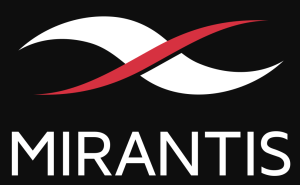27 May Mirantis releases its first major update to Docker Enterprise
In a surprise move, Mirantis acquired Docker’s Enterprise platform business at the end of last year, and while Docker itself is refocusing on developers, Mirantis kept the Docker Enterprise name and product. Today, Mirantis is rolling out its first major update to Docker Enterprise with the release of version 3.1.
For the most part, these updates are in line with what’s been happening in the container ecosystem in recent months. There’s support for Kubernetes 1.17 and improved support for Kubernetes on Windows (something the Kubernetes community has worked on quite a bit in the last year or so). Also new is Nvidia GPU integration in Docker Enterprise through a pre-installed device plugin, as well as support for Istio Ingress for Kubernetes and a new command-line tool for deploying clusters with the Docker Engine.
In addition to the product updates, Mirantis is also launching three new support options for its customers that now give them the option to get 24×7 support for all support cases, for example, as well as enhanced SLAs for remote managed operations, designated customer success managers and proactive monitoring and alerting. With this, Mirantis is clearly building on its experience as a managed service provider.
What’s maybe more interesting, though, is how this acquisition is playing out at Mirantis itself. Mirantis, after all, went through its fair share of ups and downs in recent years, from high-flying OpenStack platform to layoffs and everything in between.
 “Why we do this in the first place and why at some point I absolutely felt that I wanted to do this is because I felt that this would be a more compelling and interesting company to build, despite maybe some of the short-term challenges along the way, and that very much turned out to be true. It’s been fantastic,” Mirantis CEO and co-founder Adrian Ionel told me. “What we’ve seen since the acquisition, first of all, is that the customer base has been dramatically more loyal than people had thought, including ourselves.”
“Why we do this in the first place and why at some point I absolutely felt that I wanted to do this is because I felt that this would be a more compelling and interesting company to build, despite maybe some of the short-term challenges along the way, and that very much turned out to be true. It’s been fantastic,” Mirantis CEO and co-founder Adrian Ionel told me. “What we’ve seen since the acquisition, first of all, is that the customer base has been dramatically more loyal than people had thought, including ourselves.”
Ionel admitted that he thought some users would defect because this is obviously a major change, at least from the customer’s point of view. “Of course we have done everything possible to have something for them that’s really compelling and we put out the new roadmap right away in December after the acquisition — and people bought into it at very large scale,” he said. With that, Mirantis retained more than 90% of the customer base and the vast majority of all of Docker Enterprise’s largest users.
Ionel, who almost seemed a bit surprised by this, noted that this helped the company to turn in two “fantastic” quarters and was profitable in the last quarter, despite COVID-19.
“We wanted to go into this acquisition with a sober assessment of risks because we wanted to make it work, we wanted to make it successful because we were well aware that a lot of acquisitions fail,” he explained. “We didn’t want to go into it with a hyper-optimistic approach in any way — and we didn’t — and maybe that’s one of the reasons why we are positively surprised.”
He argues that the reason for the current success is that enterprises are doubling down on their container journeys and because they actually love the Docker Enterprise platform, like infrastructure independence, its developer focus, security features and ease of use. One thing many large customers asked for was better support for multi-cluster management at scale, which today’s update delivers.
“Where we stand today, we have one product development team. We have one product roadmap. We are shipping a very big new release of Docker Enterprise. […] The field has been completely unified and operates as one salesforce, with record results. So things have been extremely busy, but good and exciting.”
Sorry, the comment form is closed at this time.